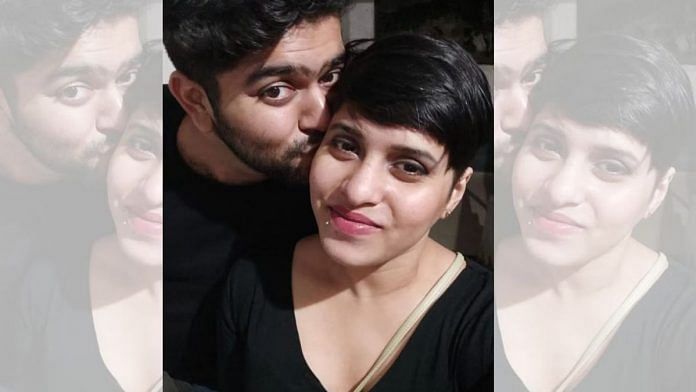Covering the case that shook India and kept the people glued for weeks involved a constant struggle for the woman in me and the reporter I am. Overcoming biases to objectively report the story is a job that I set out to do each day as a crime reporter.
But this case was different.
Journalists, camera persons, neighbours buzzed around the crime scene on 14 December with these questions: “Shraddha is so pretty”, “how did she live with that man”, “why wouldn’t she seek help”, “was he blackmailing her to convert?”
The bustling neighbourhood of South Delhi’s Chattarpur enclave couldn’t come to terms with how a 27-year-old woman was killed and chopped allegedly by her boyfriend and then thrown off in the adjoining jungle without anyone noticing. More so, how did he chop her up in a locality that has windows opening into the neighbours’ homes.
When I reached the spot that morning, the crime reporter had questions but the woman in me kept blocking the thoughts. Shraddha Walkar was a woman who chose to love a man, left her home to live with him but was now being discussed – reduced to her bones. Media and the public wanted answers – why did she love him? Some asked why she put up with the toxicity. I let out silent screams multiple times that day.
When I reached the floor of the house, a TV reporter opened the window. As I peeped inside to see the items on the floor, a strange smell hit me. I puked later that evening while returning home from the field. I had seen Aftab the same day in police custody, sleeping.
After speaking to some neighbours, as I sat on the verandah of the adjoining building to write my story, my hands turned cold. The more I looked at her photos, the more her eyes stared back.
Soon, we started calling it the ‘Shraddha murder case’.
Also read:
The media attention
As reporters, we must cite different versions, statements and reactions related to a story. But with the ‘Shraddha murder case’, my ‘self’ kept wondering about the last couple of minutes in Shraddha’s life. Did she struggle before life was snuffed out of her body? Or was she in complete disbelief because the alleged killer was her partner of over two years? Would Aftab have checked on Sharaddha right after the murder to know if she was still alive?
Between writing and reporting on the case, the mind often veered off into territories that threw violent graphic images. But you have to pull back and do your job. As a reporter, when tracking a case so gory, maintaining equanimity is the most important editorial call you can take.
The Shraddha case had rapt media attention. It’s easy to fall into the ‘gorier the better’ trap when reporting on such cases. Voyeuristic tendencies kick in. But you need to keep yourself under constant check.
Over the next couple of days, the DCP South office was crowded with journalists, every reporter wanting a piece of ‘new information’. Some were simply hunting their headlines. The story appeared taking a back seat.
‘Did he stare at her head in the fridge?’ asked someone. ‘Did he take the head out to look at it?’ came another question.
That day, in the auto back home, I wondered what qualifies as a safe space for women in India, how the society has made it difficult for women in “unacceptable relationships”, and forced many of them to weave a fairy tale to prove their choices.
By next morning, Shraddha was just another ‘story’ in the life of a reporter. That’s how the mind oscillated.
Also read:
The occupational hazard
A friend had once told me about how they had celebrated a birthday in the Delhi Mehrauli jungle. That’s their memory. The only time I visited the jungle was when the police were scanning the area for bones. As I made my way through the garbage dump yard and sat on a rock to file an update, my mind inevitably pictured Shraddha, how her body would have been chopped into pieces, and the flesh thrown in the jungle. That’s my memory of the Mehrauli jungle.
I tried and have been trying not to think about it as it would make anyone feel sick to their stomach. But as reporters, we have to let details seep into our mind, join the dots and understand the story before putting it into words.
On the day, the police said that blood-like liquid traces have been found in Aftab’s house, I had happened to walk past a meat shop. The sound of the large knife digging in made me uncomfortable. Aftab had told the police his chef training helped him understand the anatomy to chop.
I detached myself from the thoughts soon. But there is something called occupational hazard.
Views are personal.
(Edited by Anurag Chaubey)



